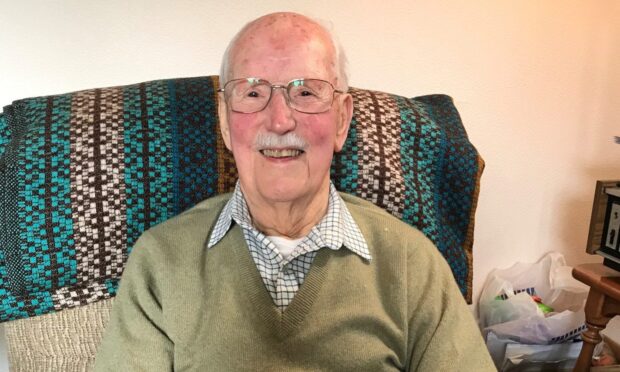Dr Colin Walker, who established the special care baby unit in Dundee Royal Infirmary and then in Ninewells Hospital, has died at the age of 100.
He will be remembered for his pioneering work in developing an intensive care service for the sickest babies in Tayside and for his contribution to providing the first computerised clinical data collection system for babies initially across Scotland and subsequently the United Kingdom.
Colin experienced ill health as a child and he said this was the driver for him to study medicine at the University of Edinburgh, graduating in 1946 and then pursuing a career in paediatrics.
He was born in Edinburgh in May 1923 where his father, James Walker, worked in a medical publishing business.
During the First World War, Colin’s father qualified as a pilot and was posted to France. He was badly injured when he was forced to crash land his aircraft in France in 1918 and suffered the effects of his injuries for the rest of his life. He died in 1944 aged 52.
Family business
Colin’s mother was Alison Ritchie, the daughter of an East Lothian gentleman farmer. She drove trucks during the First World War, helped in the family publishing business and was an accomplished piano player. She died aged 103.
After kindergarten, Colin went to Edinburgh Academy but his education was interrupted by bouts of illness between the ages of eight and 12.
He was moved to the smaller Melville College where he thrived and was made head boy for the part of the school which was evacuated to Dumfriesshire in 1940.
After graduating, Colin took up posts in Edinburgh before going on to further training at The Hospital for Sick Children, Great Ormond Street, London, a post generally reserved for graduates from Oxford, Cambridge and the London teaching hospitals.
He met his future wife, Anne, at a physiotherapy ball ball in 1948 and married the following year. Anne died in 2021 aged 96 after 72 years of marriage.
In 1957 Colin undertook a one-year secondment to the Princess Margaret Hospital for Children in Perth, Australia, to establish its first cardiac catheterisation unit.
He subsequently received an invitation to become a paediatric cardiologist in the department of paediatrics at the University of Colorado in Denver.
There he developed a pioneering technique for the life support of very small infants by partial perfusion with a unique heart/lung/kidney system.
In 1964, after six years in Denver he accepted an offer to return to Scotland to develop neonatal services in Tayside.
Colin was one of a handful of paediatricians from across the UK who began to address the needs of sick newborn babies and during his career the care available shifted from simply keeping them warm and offering fluids to being able to provide them with life-saving intensive care with ventilatory support, intravenous nutrition and new treatments.
Commitment
For several years Colin was the sole consultant available to provide this care in Tayside and his dedication and commitment was exceptional.
Latterly he had additional colleagues and this allowed him to develop his ideas on audit of the service both locally and UK-wide.
He was the chairman of several government committees addressing this issue and the outcome of this work was a computerised system that collated all data on newborn infants born in the UK with a focus on those that needed neonatal intensive care.
In recognition of his contribution, Colin was appointed president of the British Association of Perinatal Medicine and the annual meeting of that organisation was held in Dundee prior to his retiral in 1986.
In his retirement Colin was involved in many activities including contributing to the Tayside Pre-Retirement Courses that were arranged for local authority and health service employees.
Leisure time
He enjoyed playing golf and on his 90th birthday at a special outing of the Dundee Medical Golfing Society, Colin had a score of 83 round the Broomfield course in Montrose, and scoring less than his age was an additional achievement that brought great pleasure to Colin.
Colin often said that he had concerns that he had spent more time looking after the children of other parents rather than his own, but his long retirement did allow Colin and his wife Anne to be able to support their two children Hilary and Huntly and enjoy their six grandchildren and four great-grandchildren.
You can read the family’s announcement here.


Conversation